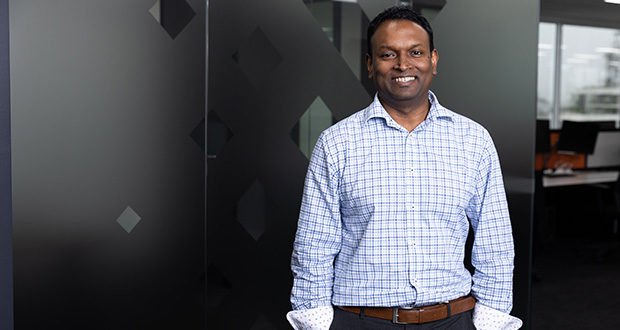In a sector that epitomises meaningful work, it's only recently that technology has emerged that can aid staff and facilities to focus more on frontline care.
Meaningful work, as a concept, has been discussed in academic, people and cultural circles for some time but really only burst into the collective consciousness of employees - and onto the radar of employers - over the past two years.
Frontline carers know what they do is meaningful to the lives of those under their direct care and those individuals' families. But they also know not all of their time can be put towards direct care.
As the Royal Commission into Aged Care Quality and Safety concluded, "a highly-skilled, well rewarded and valued, aged care workforce is vital to the success of any future aged care system."
The Commission acknowledged the dedication and passion of aged care workers but found they were let down by systemic issues, among them a lack of technology-based aids that could ease administrative burdens that took them away from the frontline.
"Many digital technologies can support aged care providers and their employees to deliver high quality and safe care," the Commission stated.
"These include tools that assist in human resource management, staff communication and training and education.
"These technologies are particularly valuable when they enhance the relationship-centred nature of care by reducing the time workers spend on non-direct care tasks."
Another recent report by the RMIT-Cisco Health Transformation Lab emphasised "how using technology to automate and streamline non-care duties will vastly improve the quality of care by freeing up carers' time".
"It will also streamline the achievement of the Royal Commission's recommended 200 minutes of staff time per resident per day and enhance overall staff satisfaction."
But the challenge for the sector is to make the use of technology aids meaningful.
As another study points out, "experiences with new technology are mixed, with 54 per cent of aged care workers reporting it has improved the quality and efficiency of their work."
Thirty-one per cent said it had no effect, and 15 per cent said it had harmed quality and efficiency.
Out of sync
In any sector - and aged care is no different - the priorities of employers and staff should be aligned.
Employers know they need to provide opportunities for people to perform work that has meaning if they are to attract and retain the best talent.
By the same token, staff want to be given meaningful work that ignites their passion, harnesses their knowledge or skills and challenges them to strive to improve.
In practice, the two parties can become out of sync on the issue.
If you were to step back and look objectively at your role today, what percentage would you describe as 'meaningful', and what percentage might you categorise as 'mundane'?
More than likely, only some things you do keep your internal fire burning brightly and consistently. There may be things that cause you to question whether or not your work or overall contribution is meaningful.
Underlining the disparity, your employer may consider what you do to be 'meaningful' insofar as it actively and positively contributes to the provider's financial position or compliance responsibilities.
Whether or not that meets your standard for, or definition of, meaningful work is another question entirely, but it's one that employers are trying to understand and address.
Being purposeful
Employers are becoming much more aware of these issues. To attract and retain aged carers, they oftentimes have no choice. Employers know they must do everything possible to keep existing carers happy.
There is a considerable strain in the aged care sector today.
Research shows 50 per cent of workers (139,000 people) intend to leave the Australian residential aged care industry within the next three years.
Strikingly, "relationships with residents and their families" is the only reason many stay on, and carers are two to three times more likely to stay when they feel their work has purpose.
That puts a timeframe on the window of opportunity for meaningful change. That work starts now.
Leaders of aged care providers are likely to need to work on their skills to foster a meaningful work environment.
As PwC notes, this may not come naturally.
"It's rarely second nature for leaders to focus on making jobs fulfilling," PwC says.
"Doing so requires deep empathy on the part of managers and the ability to translate the company's overall purpose into specific actions and behaviours so that employees can see how their work contributes to that purpose.
"It also requires organisations to identify and eliminate gaps between their words and deeds."
But PwC goes on to say that managers can create the right work environment and leadership model and remove the most burdensome aspects of employees' lives - excessive bureaucracy, points of friction, and administrative tasks that sap the joy from work.
Automation's time to shine
The automation of repetitive, tedious work is an increasingly valuable action that can cleanse roles of the mundane so that only meaningful aspects remain.
How much an employee's role can be automated will need to be determined case-by-case, though some estimates indicate the automatable portion to be significant.
McKinsey, for example, estimates that 25 to 46 per cent of current work activities in Australia could be automated by 2030.
These are not insignificant percentages. They offer a view of the significant time savings possible from automating repetitive parts of current roles.
Importantly, this time can be invested back into quality-of-care outcomes for residents, which is worth striving for.
Rajith Haththotuwegama is Manager Data Analytics & Automation at Tecala, an technology services provider.
Do you have an idea for a story?Email [email protected]
 Aged Care Insite Australia's number one aged care news source
Aged Care Insite Australia's number one aged care news source

